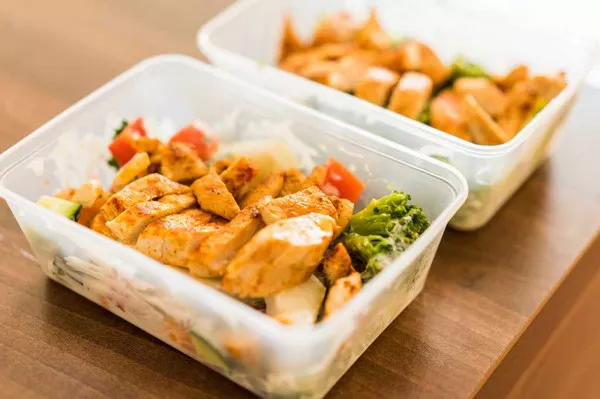Fasting has gained popularity as an effective weight loss strategy, but what you eat after fasting plays a crucial role in maintaining your progress. This article will guide you through the process of breaking your fast and making smart food choices to maximize weight loss. By adhering to the following principles, you can fuel your body properly, optimize nutrient intake, and support your weight loss goals.
Importance of Breaking the Fast Gradually
After a prolonged fast, it’s essential to ease back into eating gradually. Start with small, light meals and gradually increase portion sizes over a few days. This approach allows your digestive system to adjust, preventing discomfort or digestive issues.
Choose Nutrient-Dense Foods
Focus on consuming nutrient-dense foods that provide essential vitamins, minerals, and antioxidants. Include lean proteins, whole grains, fruits, vegetables, and healthy fats in your post-fast meals. These foods will help you feel satiated and provide sustainable energy while promoting weight loss.
Lean proteins like skinless poultry, fish, tofu, legumes, and low-fat dairy products are excellent choices. They provide amino acids, the building blocks of proteins, which are essential for muscle repair and satiety. Whole grains like quinoa, brown rice, and oats are rich in fiber and help regulate blood sugar levels, while also providing important nutrients.
Include a variety of colorful fruits and vegetables in your meals to obtain a wide range of vitamins, minerals, and antioxidants. They are low in calories and high in fiber, helping you feel fuller for longer. Healthy fats like avocados, nuts, seeds, and olive oil should also be incorporated into your post-fast meals. These fats provide essential fatty acids and contribute to satiety.
Hydrate Well
Staying properly hydrated is key, both during and after fasting. Water is essential for digestion, metabolism, and overall health. Aim to drink at least eight glasses of water daily. Additionally, you can incorporate herbal teas or infused water for added flavor and health benefits.
Drinking water before meals can also help reduce calorie intake and promote weight loss. Research suggests that water consumption increases the feeling of fullness, leading to decreased food intake. Proper hydration also supports optimal metabolic function, ensuring efficient calorie burning.
Incorporate Fiber-Rich Foods
Fiber aids in digestion, promotes fullness, and helps regulate blood sugar levels. Opt for whole grains, fruits, vegetables, and legumes to ensure an adequate intake of dietary fiber. These foods also provide essential vitamins and minerals, enhancing your overall nutritional profile.
Whole grains such as quinoa, brown rice, whole wheat bread, and oats are excellent sources of dietary fiber. Fruits like berries, apples, and oranges, as well as vegetables like broccoli, Brussels sprouts, and spinach, are also high in fiber. Legumes, including beans, lentils, and chickpeas, are rich in fiber and protein, making them a great addition to your post-fast meals.
Consuming fiber-rich foods can help control appetite, as they add bulk to your meals and promote feelings of fullness. Additionally, fiber slows down the digestion and absorption of carbohydrates, preventing rapid blood sugar spikes and crashes.
Prioritize Healthy Fats
Contrary to popular belief, consuming healthy fats can aid in weight loss. Include sources like avocados, nuts, seeds, and olive oil in your post-fast meals. These fats provide essential fatty acids and help you feel satisfied, preventing overeating.
Healthy fats not only enhance the taste and texture of your meals but also contribute to satiety and nutrient absorption. Avocados are a rich source of monounsaturated fats, which have been associated with improved heart health. Nuts and seeds, such as almonds, walnuts, chia seeds, and flaxseeds, are high in omega-3 fatty acids and provide a satisfying crunch. Olive oil, especially extra virgin olive oil, is an excellent choice for cooking and dressing your dishes.
Limit Added Sugars and Processed Foods
Highly processed foods and added sugars can hinder weight loss progress. Minimize your intake of sugary beverages, desserts, and processed snacks. Opt for whole, unprocessed foods instead, as they provide more nutrients and support long-term weight management.
Added sugars, often found in sodas, energy drinks, candies, and baked goods, can contribute to weight gain and metabolic disorders. They provide empty calories and lack nutritional value. Instead, satisfy your sweet tooth with naturally sweet fruits or opt for small portions of dark chocolate, which contains antioxidants and may have potential health benefits.
Processed foods, such as pre-packaged meals, fast food, and snack items, are typically high in calories, unhealthy fats, and sodium, while lacking essential nutrients. These foods can lead to overeating and disrupt weight loss efforts. Focus on whole foods like lean proteins, whole grains, fruits, vegetables, and healthy fats to nourish your body and support weight loss.
Conclusion
When breaking a fast, it’s important to nourish your body with nutrient-dense foods to support weight loss goals. Focus on gradually reintroducing meals, incorporating lean proteins, fiber-rich foods, healthy fats, and staying hydrated. By prioritizing whole, unprocessed foods and avoiding excessive sugars and processed snacks, you can maintain a balanced diet while shedding excess pounds. Remember to practice portion control and listen to your body’s signals of hunger and fullness. By following these guidelines, you can optimize your post-fast diet and promote long-term weight loss success.


